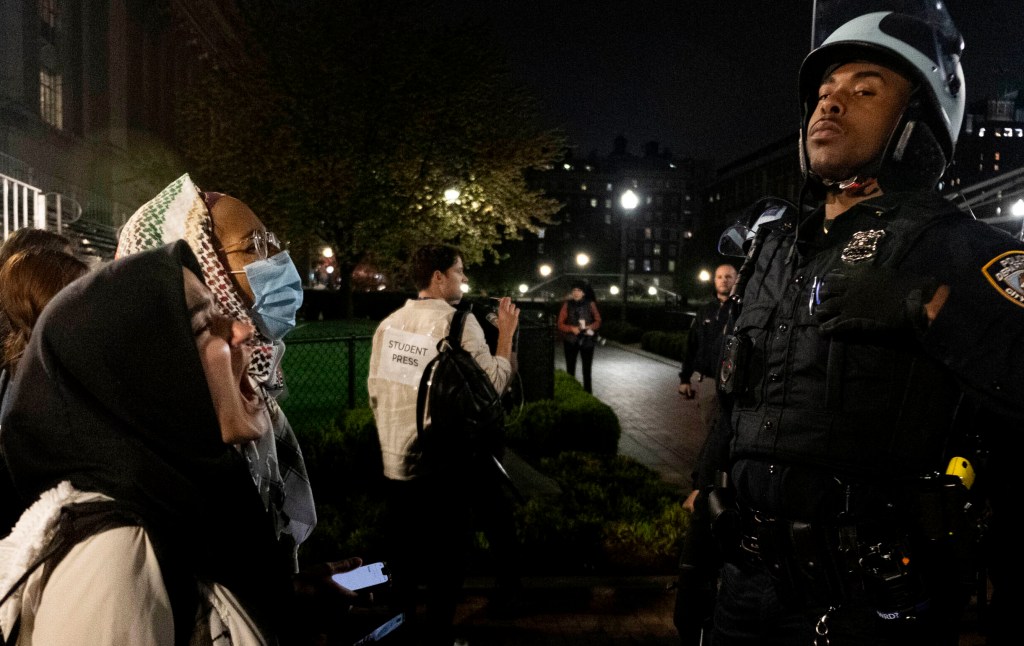With tensions over pro-Palestinian protests escalating on college campuses across the United States, the Committee to Protect Journalists called on university authorities and law enforcement agencies to allow reporters to freely cover the demonstrations.
“Journalists – including student journalists who have been thrust into a national spotlight to cover stories in their communities — must be allowed to cover campus protests without fearing for their safety,” said CPJ’s U.S., Canada and Caribbean Program Coordinator Katherine Jacobsen on Wednesday. “Any efforts by authorities to stop them doing their jobs have far-reaching repercussions on the public’s ability to be informed about current events.”
Since the Israel-Gaza war began on October 7, the U.S. Press Freedom Tracker – a CPJ partner – has documented at least 13 arrests or detentions and at least 11 assaults of journalists covering protests related to the conflict.
Read CPJ’s statement and resources for journalists covering protests.
Global press freedom updates
- Israeli police detain and assault Palestinian journalist Saif Kwasmi
- Iranian economics reporter begins 5-month sentence in Karaj prison
- Taliban detain 3 Afghan radio journalists for playing music, talking to female callers
- Brazilian court upholds conviction of killers of journalist Valério Luiz de Oliveira
- CPJ urges Argentine President Javier Milei to end attacks on press freedom
- Chilean journalists Daniel Labbé and Josefa Barraza face criminal charges
- Cuban journalist questioned about social media posts, jailed
- Burkina Faso’s media regulator suspends BBC Africa and Voice of America
- Malaysia’s prime minister calls for ‘action’ over Bloomberg casino report
- Serbian ex-mayor jailed for 4 years in arson attack on journalist Milan Jovanović
- Istanbul police obstruct, tear gas, shoot at reporters during May Day march in Turkey
- Russia puts Forbes journalist under house arrest, detains 2 others
- FOX 7 Austin photojournalist faces misdemeanor charges after felony charges dropped; CPJ joined 40 organizations in urging Texas authorities to decline prosecution of the charges
Spotlight
Ahead of World Press Freedom Day on May 3, CPJ’s CEO Jodie Ginsberg wrote about the role press freedom plays in protecting democracies around the world.
“With half the world’s population casting ballots in elections this year, independent reporting on the candidates and the issues is essential,” stated Ginsberg in an op-ed published by Project Syndicate. “Yet from Washington and Westminster to Buenos Aires and Budapest, efforts to intimidate, curtail, and constrain the free press are becoming more frequent and brazen.”
- ‘I watch my back’: Spike in BBC World Service journalists working in exile — Stephanie Hegarty, BBC World Service
- Amid increasing pressure, journalists in India practice more self-censorship — Hanan Zaffar and Jyoti Thakur, Al-Jazeera Journalism Review
- AD800: Africa’s shifting media landscapes: Digital media use grows, but so do demographic divides — Jeffrey Conroy-Krutz, Kelechi Amakoh, and Komi Amewunou, Afrobarometer
- Kyrgyzstan: Central Asia’s island of democracy sinks into authoritarianism — Bruce Pannier, Foreign Policy Research Institute
